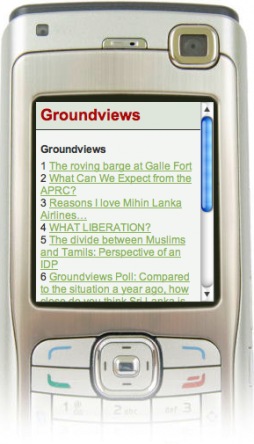mobile democracy
Posted by VivianOnano on Jun 27, 2011
SMS Uprising:Mobile Phone Activism in Africa data sheet 1543 Views
Author:
Ekine,Sokari, Nathan Eagle, Christian Kreutz, Ken Banks, Tanya Notley, Becky Faith, Redante Asuncion-Reed, Anil Naidoo, Amanda Atwood, Berna Ngolobe, Christiana Charles-Iyoha Joshua Goldstein, Juliana Rotich, Bukeni Waruzi.
Abstract:
This compendium of articles (available at a cost) attempts to critically investigate the use and utility of mobile phones in Africa. Contributors include Nathan Eagle who writes about ‘Economics and power within the African telecommunication industry’, Amanda Atwood’s report on Kubatana’s experiences in Zimbabwe setting up mobiles as a means of sharing news outside of government propaganda, to Bukeni Waruzi’s essay on collecting data on children’s rights violations in the Democratic Republic of Congo in 2004. SMS Uprising is published by Fahamu, a British-based organization with a focus on information services for Africa. For a critique of the book see our aticle here.
Posted by MohiniBhavsar on Oct 06, 2010
SMS and Democratic Governance in the Phillipines data sheet 2423 Views
Abstract:
This paper examines the use of mobile phones, particularly the short messaging system or SMS, in promoting democratic governance - organizing institutional frameworks to achieve democratic ideals. The objective of this paper is to document how mobile phones is being used to promote popular participation in Philippine politics.
The paper looks into the various SMS-based services that enhance citizen participation. Specifically, SMS services that provides the following were examined: 1) Provision of Public Information; 2) Delivery of Public Service; 3) Amplifying Voice; 4) Vigilantism. 5) Elections and 6) Mass Action and 7) Developing Political Accounts.
Previous studies of SMS in government show that over half of Philippine government agencies use SMS-based services. Most of these national government agencies use SMS as a mechanism for providing information and receiving feedback. In a few instances SMS is used to enhance the delivery of public services.
The notable examples of SMS-based services that provide information are the Department of Agriculture’s Presyo and Panahon Text and the Department of Trade and Industry’s TextDTI. The PAYBIR is an SMS-based service that allows citizens to pay taxes through their cell phones. The Office of the President’s TXTGMA and the office of Marikina Mayor’s TXTMCF elicit complaints, comments and suggestions from constituents. These two are examples of SMS-based services that amplify the citizens’ voice. On the other hand, the DILG’s Patrol 117 is an example of a government service that promotes citizen participation in crime prevention.
The role of SMS in elections as well as its role in mobilizing political action is also discussed. Examples of how text messaging was used as the medium for organizing rallies, spreading information, and stating political positions were given. The discussion on how SMS help develop political account or interpretation of current events was considered through an analysis of political jokes spread through SMS.
While the focus of the paper was on how SMS is being deployed to promote citizen participation, it was noted that SMS is also used in anti or counter-democratic projects.
In sum, this paper documents the role played by SMS in the overall effort at creating an effective set of rules for managing voluntary political exchanges in the Philippines.
Posted by yajitha on Jan 26, 2008
Groundviews is now featuring its latest content on mobile devices. Go to http://groundviews.mofuse.mobi/ to access articles from the award-winning Sri Lanka citizen journalism site on a mobile phone. Groundviews mobile works with Blackberry’s, the iPhone and all recent Nokia, Sony Ericsson, LG, Samsung and other mobile phones capable of and set up for Internet access. Our site does not require 3G or high speed connectivity and is not tied to any mobile operator or service.
Groundviews - http://www.groundviews.org - Sri Lanka's first and award winning citizens journalism website features ideas, opinions and analyses on humanitarian issues, media freedom, human rights, peace, democratic governance and constitutional reform.
Posted by CorinneRamey on Sep 25, 2007
Thousands of monks have taken to the streets in Myanmar within the past month in pro-democracy demonstrations. Today the Burmese government threatened the monks with legal action.
The government has shut down mobile phone service to pro-democracy supporters, activists, and some foreign journalists, writes the Agence France-Presse. A journalist and photographer from the AFP are among those who have lost phone service, and the agency has requested that Myanmar restore service to the journalists. The National League for Democracy also reports that its landline phone has been cut off, according to this article in The Economic Times.
Posted by Bonnie Bogle on Jul 01, 2006
In the latest edition in m-trends’ series on women in mobile, Rudy de Waele features Trixie Concepcion from TXT Power and Mobile Active. Trixie played a key role in spreading the infamous Hello Garci ringtone throughout the Philippines and helped make it the most well known political ringtone in the world. It's a great interview that you can't miss. Here’s an excerpt from the article:
While some of us are working and wondering what’s going to be the next new business model or next killer application in mobile technology, other people in different parts of the world are using the mobile phone to fight injustice. Trixie Concepcion of TXTPower, the group that popularized the Hello Garci protest ringtones in the Fillipines, is one of them. I think it’s essential for m-trends.org readers to know a bit more about her and her activities.
You can read the whole piece over at
m-trends.
Posted by cspence on Jun 07, 2006
On May 21 the National Democratic Institute (NDI) provided technical assistance to a Montegrin NGO called the Center for Democratic Transition (CDT) that successfully monitored their country's independence referendum using SMS as the primary observer reporting tool. We believe this is the first time an election monitoring group has employed text messaging to meet all election day reporting requirements. Details about the program follow.
General Information:
- Election monitors from the Center for Democratic Transition (CDT) in Montenegro conducted the first ever election monitoring project where SMS was used as the primary tool for reporting election information with NDI technical assistance.
- 200 observers reported approximately 11 times each throughout the day including voter turnout and results data, transferring over 2000 reports to the reporting center in Podgorica. All reports were automatically entered into the reporting database where they were immediately included in analysis reports.
Turnout
Posted by Bonnie Bogle on Jun 06, 2006
With the expansion of cell phone access and text messaging use, it was only a matter of time before it started – the SMS joke. And not surprisingly, few subjects are poked fun at more than local politics and of course the politicians.
"Da Vinci Code to be totally banned in the Philippines. GMA [Gloria Macapagal Arroyo] has been informed by Dan Brown that she is a direct descendant of Judas."
That’s one of the many SMS jokes being circulated throughout the Philippines making fun of the current president and her restrictive policies, among other things. Tonyo Cruz from TXTPower, and a MobileActive, passed on a bunch of the jokes that he’s seen sent around the country. You can read them all at the bottom of this post – thanks Tonyo!
The Philippines has been ahead of the curve in using cell phones for activism (remember the 2001 revolution and the Hello Garci ring tones), but SMS political jokes are spreading to other countries too. In Tamil Nadu, India, residents are sending out SMS jokes to make fun of the candidates from a recent election and their policies. One message circulating the region is an image of a candidate crying – supposedly showing her dismay at her party’s poor performance in the election. Another criticizes one party’s idea to give out “freebies,” saying that these practices will hurt businesses and make people lazy.
Posted by Simon Pavitt on Apr 02, 2006
On 11 March 2004, just before the Spanish general election, bombs exploded on 4 trains as they entered Madrid killing 200 people.
The Government hurredly put the blame on ETA, an organisation fighting for Basque independance from Spain. But many people assumed the bombs were a consequence of Spain's support for the war in Iraq and started gathering in the centre of Madrid.
News of the protests spread by mobile phone and more and more people joined, accusing the government of managing the release of information about the attacks to their own political ends. The national newspaper El Pais referred to "the more than dubious attitude of the government in relation to the lines of investigation". Eventually the Government was forced to admit that the explosions might have been caused Al-Qaeda.
In the election a couple of days later the ruling Partido Popular, which had been ahead in the polls, surprisingly lost to the socialist PSOE. As one person put it:
Posted by KatrinVerclas on Jan 11, 2006
TXTPower brings gospel of mobile activism to Hong Kong's anti-WTO protests - On Dec. 16 at Victoria Park in Hong Kong, amid anti-globalization forums and protests left and right, convenors of TXTPower successfully mounted a meeting of mobile activists.
Nineteen
souls gathered for the meeting, coming from Africa, North America and
Asia. The meeting focused more on sharing the telecommunications
situation on our respective countries and the challenges facing the
individuals and movements using mobile technology for social activism.
Posted by KatrinVerclas on Jun 05, 2005
Donga.com, the Korean news site on technology and the internet, has this little tidbit of an article:
21st Century's Democracy Comes From Citizens
The
democratic movement in the Middle East, the democratic revolution in
Central Asia, and China;s anti-Japanese protests. These events are
weighty incidents that have shaken the world this year. Behind all
these incidents are mobile phones and the Internet. In other
words,mobile power; and Internet power; made people power.
If the print media led a modern revolution and TV pulled down the
Berlin Wall, the thumb revolution,represented by text messages from
mobile phones and the Internet, is currently destroying the wall of a
controlled society after emerging as a new kind of political power.
Experiencing
the recent candlelight protest around Gwanghwamun organized by high
school freshmen, the rally against the impeachment of President Roh,
and the group of extremely supporters of President Roh in the 2002
presidential election, Korea is already a developed country
in terms of mobile phone demonstrations.


